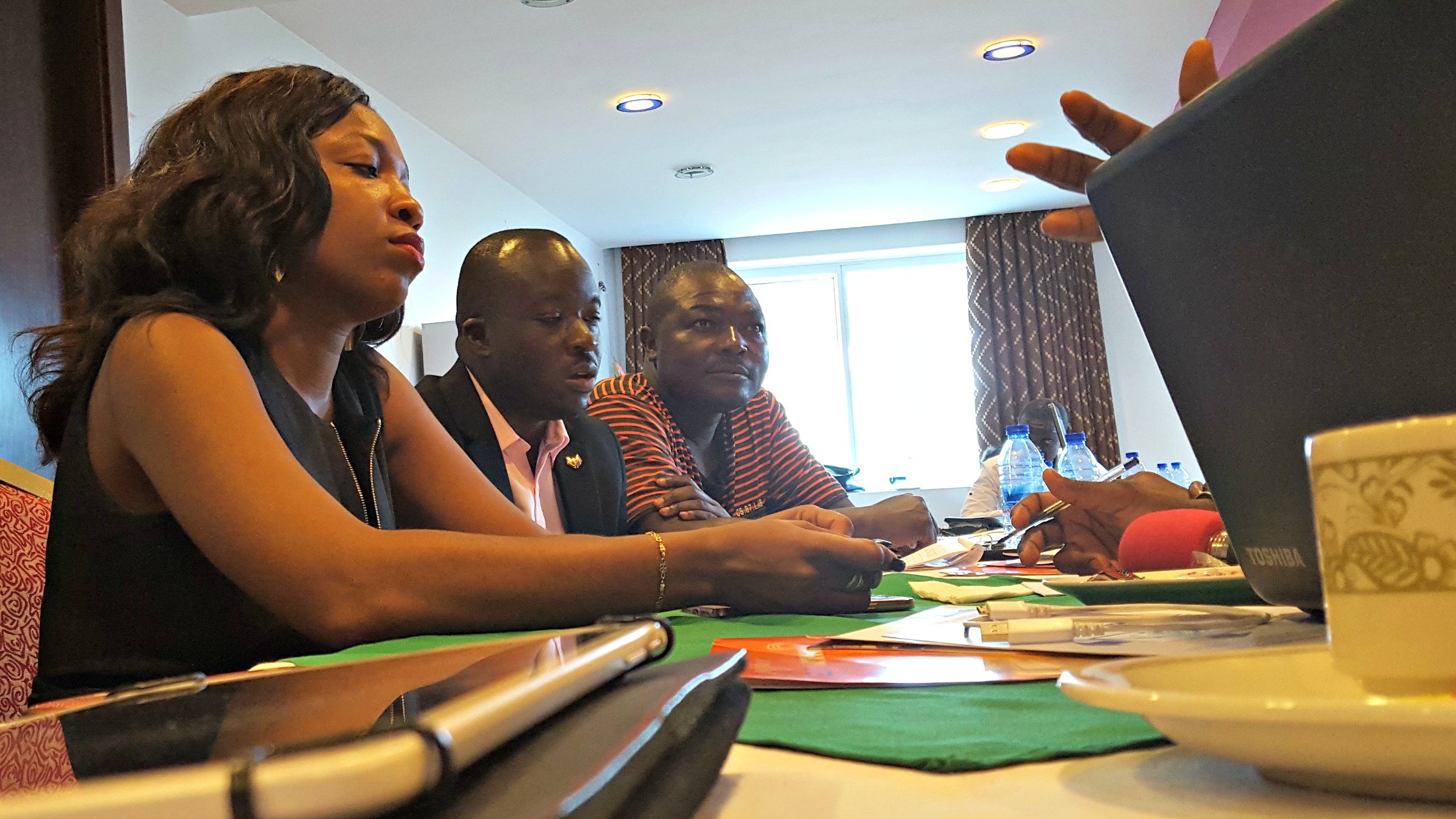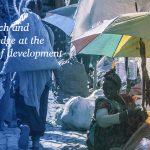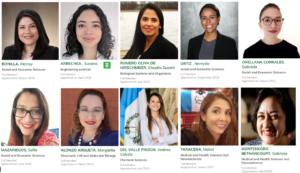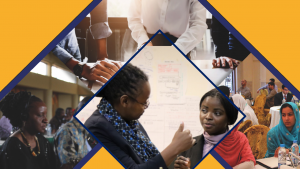
Supporting parliaments in a post-truth world
Co-authored by Emily Hayter, Lindsay Walker and Verity Warne
Recently, INASP held a webinar to explore how peer learning can support evidence use in parliament. This webinar was hosted in collaboration with African Center for Parliamentary Affairs (ACEPA) and AGORA as part of the extension of our parliamentary peer learning project supported by a SPARKS grant from the Effective Institutions Platform. Our partner parliaments in Kenya, Uganda and Ghana shared their experience of how staff and Members of Parliament (MPs) can work together to drive an evidence-informed approach within parliament.
Here, we discuss how peer learning can strengthen evidence use in parliaments, sharing some of the insights gained during the webinar discussions.
In our current global political climate, the importance of strong parliaments that can systematically use evidence to scrutinise governments is clear. Parliaments that can draw on strong, independent evidence to conduct rigorous and informed debates are better able to hold the Executive to account and protect the interests of the public.
Many parliamentary information support systems are ill-equipped to support evidence-informed debate and scrutiny in the legislature. Barriers include: insufficient numbers of staff, inadequate expertise of staff in key technical areas (in particular science and technology topics such as oil and gas, climate change, and GMOs), low visibility of research departments within parliament, and limited networks with evidence producers. For an in-depth analysis of the key issues affecting evidence use in African Parliaments, see our Evidence in African Parliaments report. These barriers contribute to parliament’s inability in many countries to meaningfully hold the Executive to account.
In order to influence change, staff and MPs need to be able to work together to improve the use of evidence, but opportunities to meaningfully and systematically collaborate around evidence use are often limited.
Supporting peer learning is a way to influence change around evidence use in parliamentary scrutiny, oversight and representation—contributing to stronger democracies.
INASP’s Evidence-Informed Policy Making team have been working with parliaments and partners across Africa to improve the use of evidence in decision-making by facilitating peer learning.
We have learned much from others working in the sector- and continue to do so. In collaboration with the AGORA Portal and supported by the Effective Institutions Platform, we have created an online resource to gather and share the expertise of parliamentary development experts on evidence use in parliaments.
Our parliamentary learning exchange initiative grew out of our DfID-funded Building Capacity to Use Research Evidence (BCURE) programme. The exchange brought together staff from information support units in the parliaments of Uganda, Ghana and Zimbabwe, who had been part of the programme and wanted to continue collaborating to support evidence informed scrutiny and decision making in parliaments. The group named themselves the African Parliamentary Evidence Network (APEN). Through the SPARKS grant, we were able to grow this network to include Kenya and Malawi.
The aim was to strengthen the role of parliamentary information support units in evidence uptake by providing a space for peer exchange and support— enabling individuals who are driving change within parliaments to collaborate and support each other. Both ‘learning together’ and ‘learning from each other’.
Peer learning maximizes use of the experience of participants, allowing them to play an active role in their own and others’ learning.
There is demand and commitment from parliaments to participate in peer learning initiatives.

Marale Sande, Senior Research and Policy Analyst with the Parliamentary Research Services at the Parliament of Kenya
Our experience shows that staff are highly motivated to learn from each other and benchmark against each others’ experience. During our webinar, Marale Sande, Senior Research and Policy Analyst in the Parliamentary Research Service of the Parliament of Kenya, made the point that:
Peer learning supported by INASP has a role in sustaining the momentum of the Parliamentary Caucus on Evidence Informed Decision Making (PC-EIDM), a joint initiative between staff and Members of Parliament in Kenya. PC-EIDM itself is a product of regional learning.
And it works. A number of the most recent innovations in African parliaments around evidence use have been linked to peer learning initiatives.
One success story is Research Week in Uganda (read more here or watch the video): our learning exchange programme brought Dr Abraham Ibn Zackaria, Research Officer in the Research Department at the Parliament of Ghana to observe the Ugandan initiative. Dr Zackaria then spearheaded the implementation of a similar week in Ghana:
The number of MPs visiting the Research Department has more than doubled since the exhibition week, and we have identified some champions in each committee, who are being used to encourage the use of our products by MPs and Committees. The demand for research products such as budget briefs from individual MPs has also increased.
Our learning exchange initiative has also enabled lessons from Uganda and Ghana to inform Kenya’s plans for awareness-raising activities around evidence-informed policy making (EIPM) in the new 12th Parliament. This will help the Evidence Informed Decision Making Caucus to attract and engage new ‘evidence champions’ among the incoming MPs.
Marale says:
Peer learning through INASP provides an opportunity to share ideas in preparation for orientation activities.
Continuing the good work: further opportunities to strengthen evidence informed decision through peer learning
In our webinar, John Mugabi Bagonza, Director of the Department of Research Services at the Parliament of Uganda, and the original host of Research Week, emphasized that continuing to participate in peer learning activities is a priority to ensure that experiences, technologies and challenges are shared among African parliamentary research departments.
Our experience shows that although parliaments tend to face similar challenges in evidence use, they each have specific areas where they have managed to break through and find solutions. As the examples shared here and in our webinar demonstrate, learning is not only about problems but also about success stories.
Dr Rasheed Draman, Executive Director of the African Centre for Parliamentary Affairs (ACEPA), says
Through peer learning, lessons on overcoming challenges have been and continue to be learnt, i.e. during some of the joint activities organized by INASP and ACEPA for partner parliaments.
Peer learning with EIPM has huge potential for improving parliamentary democracy and development. Scale up and longer-term commitment is needed.
INASP is currently exploring partnerships which will enable us to continue to strengthen evidence informed scrutiny and decision making in African parliaments through peer learning. Our ambition is to grow the network and continue to build on our existing work – more face to face and virtual connections, support for specific initiatives in each parliament, and a learning/reflection strand.
We are always keen to work with people and organizations who share our vision for a world where development is enabled by research and knowledge, and our commitment to developing capacity through long-term Southern partnerships. If you would like to discuss ideas, or hear more about any element of our work, please do get in touch.




 Previous Post
Previous Post


